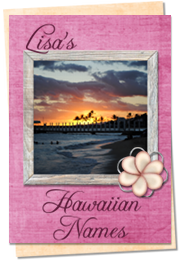Today I am featuring a mom that lost her beautiful daughter Cora, to CHD (Congenital Heart Defects). Everyday she shares her story through blogging , Facebook, and now through her just released book.
Kristine brought her daughter Cora home from the hospital, with a clean bill of health. About a week later, she passed away suddenly during a feeding. Kristine and her family were devastated. Since then she has blogged and shared important information with other families, in hopes that she can save other children from this horrible fate.
Please take some time out of your day to read about this beautiful little girl, and educate yourself on CHD.
Here are Kristine's blogs:
(these two are aimed towards families that have lost a child)
www.corasstory.org
healafterloss.com
(these are grassroots campaigns aimed at helping children with heart defects)
www.operationhealinghearts.org
www.pulseoxadvocacy.com
If you would like to read Kristine's ebook click here. However please respect Kristine's wishes:
The book is free. You are free to share it, distribute it and link to it, with some caveats, you may not change any of it, you may not claim it as yours and you may not charge for it.
Kristine brought her daughter Cora home from the hospital, with a clean bill of health. About a week later, she passed away suddenly during a feeding. Kristine and her family were devastated. Since then she has blogged and shared important information with other families, in hopes that she can save other children from this horrible fate.
Please take some time out of your day to read about this beautiful little girl, and educate yourself on CHD.
Here are Kristine's blogs:
(these two are aimed towards families that have lost a child)
www.corasstory.org
healafterloss.com
(these are grassroots campaigns aimed at helping children with heart defects)
www.operationhealinghearts.org
www.pulseoxadvocacy.com
If you would like to read Kristine's ebook click here. However please respect Kristine's wishes:
The book is free. You are free to share it, distribute it and link to it, with some caveats, you may not change any of it, you may not claim it as yours and you may not charge for it.
Impact of Congenital Heart Disease
(this information is taken directly from www.corasstory.org)
- Congenital Heart Diseases are also known as congenital heart defects. Over 30 known congenital heart defects exist.
- Often the abbreviation, "CHD" is used to refer to congenital heart disease.
- CHD is also the most prevalent birth defect, according to the March of Dimes.
- About 1 in 100 babies are thought to be born with the birth defect in the United States. Different organizations use a different number, I've seen it as high as 1 in 70.
- Some CHDs are picked up in utero by a regular ultrasound.
- Others can be picked up by a Level II ultrasound.
- Some say a fetal echocardiogram should be conducted on every mother and child to test baby hearts.
- Others want an echocardiogram, test that uses sound waves to get a picture of the heart, for every newborn.
- Right now, Cora and I lobby for a pulse oximetry test on every baby. This test is cheap, quick, non-invasive and should be standard in newborn screening. A couple of groups are working on making this test standard.
- If you're pregnant, use the Earth Mama, Angel Baby birth plan creator, it includes getting the pulse oximetry test for your newborn and reminds you to do so after birth.
- Some CHDs can't be detected by known methods. So much more research is needed. Spreading awareness leads to more research funding.
What can you do?
- Until pulse oximetry tests are standard. You can tell mothers and fathers to ask their doctor to run a pulse ox on their newborn between 24 to 48 hours of age.
- I developed this flyer for pregnant woman, for you look at and pack in your hospital bag.
- Spread the word. Awareness means more support for much needed research funding. Awareness means less mothers and fathers will find out about CHD from the coroner.






































0 comments:
Post a Comment